-
Frampton, M., Schiller, U., Parker, J., Hartogh, T., Arlinghaus, G.A., Fry, A.D.J., Autio, K., Ndhlovu, N. (2025): Using the arts in social work education for short-term European mobility: evaluating student experiences on an Erasmus+ blended intensive program, Social Work Education, DOI: 10.1080/02615479.2025.2466707
Tagged / Erasmus Mundus
BU team meets with Green Tara Nepal in Kathmandu
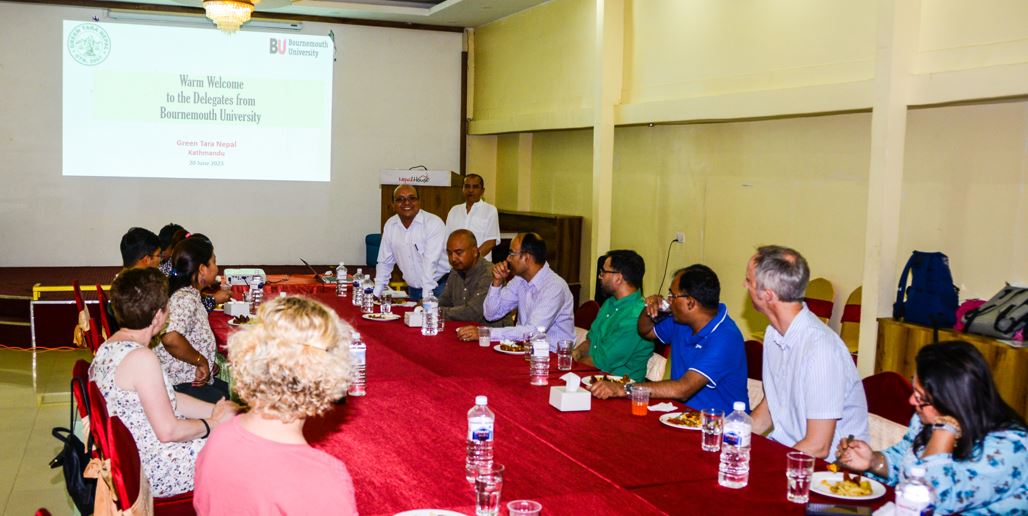 A team of academics from Bournemouth University (BU) on the Erasmus+ exchange met with the Non-Governmental Organisation (NGO) Green Tara Nepal (GTN) in Kathmandu this week. BU has been collaborating with Green Tara Nepal for nearly 15 years. GTN is non-profit making charity, established in 2007, which focuses on research, publications, advocacy, training and social mobilization in a holistic community development approach. GTN works closely among the individuals and groups through health promotion using participatory and community development approaches. Over the years various BU academics have conducted many research projects with the support of GTN in Nepal, organised dissemination events and conferences, wrote grant applications, published papers, and so so.
A team of academics from Bournemouth University (BU) on the Erasmus+ exchange met with the Non-Governmental Organisation (NGO) Green Tara Nepal (GTN) in Kathmandu this week. BU has been collaborating with Green Tara Nepal for nearly 15 years. GTN is non-profit making charity, established in 2007, which focuses on research, publications, advocacy, training and social mobilization in a holistic community development approach. GTN works closely among the individuals and groups through health promotion using participatory and community development approaches. Over the years various BU academics have conducted many research projects with the support of GTN in Nepal, organised dissemination events and conferences, wrote grant applications, published papers, and so so. 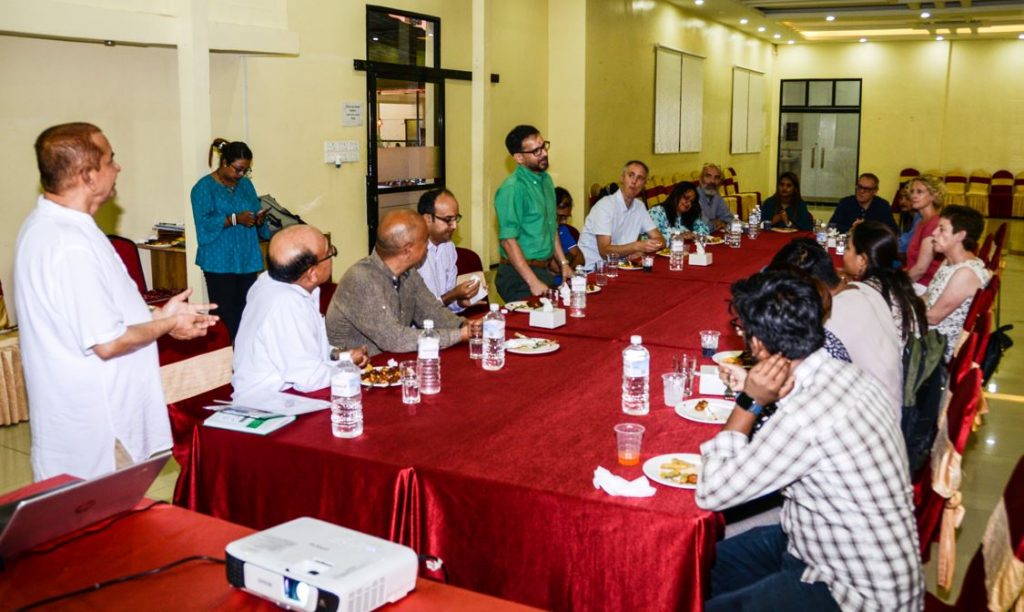
The BU Erasmus+ visitors included FHSS academics Prof. Steve Ersser, Dr. Michele Board and Dr. Pramod Regmi, as well as the Head of BU International Partnerships Dr. Alistair Morrison and Global Engagement Officer Elaine Hakes, and from the department of Psychology Dr. Shanti Shanker, and last, but not least, FHSS Ph.D. student Yagya Adhikari.
I would personally like to say thank you very much for all the support I have received from GTN over the past two decades!
Prof. Edwin van Teijlingen
Centre for Midwifery & Women’s Health (CMWH)
Erasmus+ exchange visit to Nepal by Dr. Rebecca Neal
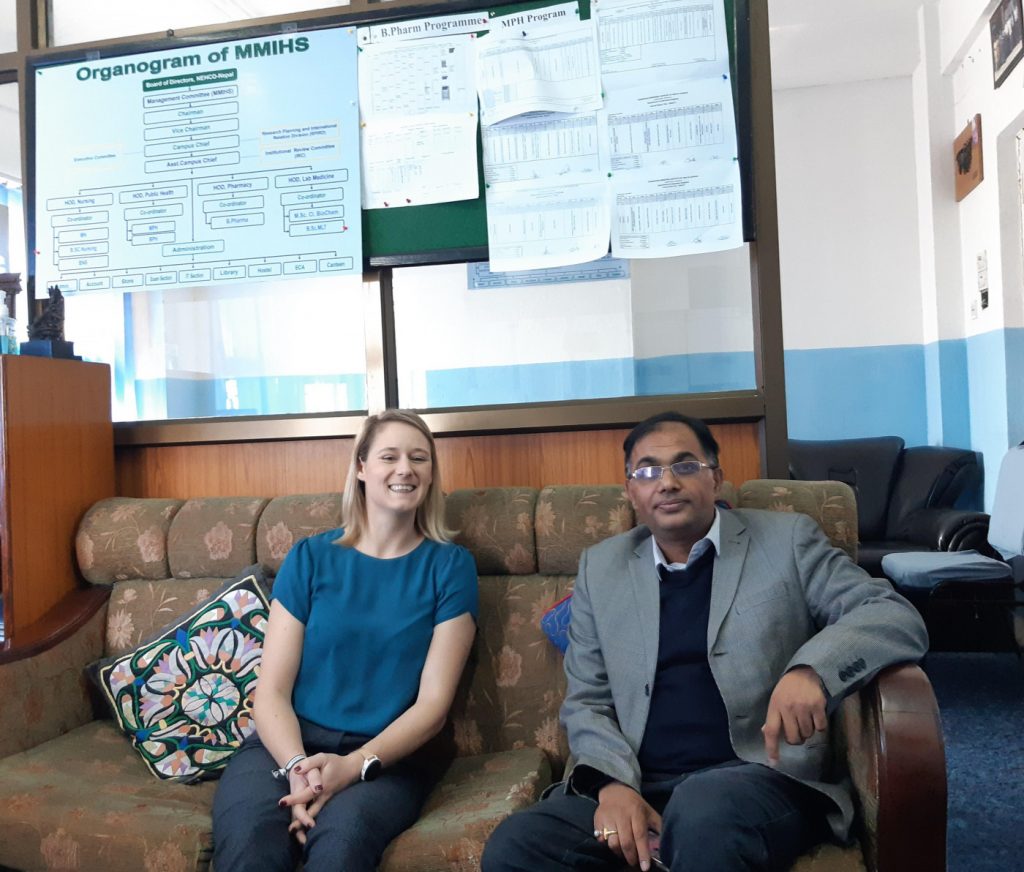 Last weekend Dr. Rebecca Neal, from the Faculty of Health & Social Sciences (FHSS) arrived in Kathmandu on her Erasmus+ exchange with Manmohan Memorial Institute of Health Sciences (MMIHS) in Nepal. Rebecca is a Senior Lecturer in Exercise Physiology in the Department of Rehabilitation & Sport Sciences. She met with Prof. Sujan Marahatta at MMIHS to discuss her her teaching in Kathmandu (see photo). Prof. Marahatta is also BU Visiting Faculty in FHSS. Rebecca faciltiated a workshop session with MSc students on their research proposals for their dissertations on her first day in Kathmandu.
Last weekend Dr. Rebecca Neal, from the Faculty of Health & Social Sciences (FHSS) arrived in Kathmandu on her Erasmus+ exchange with Manmohan Memorial Institute of Health Sciences (MMIHS) in Nepal. Rebecca is a Senior Lecturer in Exercise Physiology in the Department of Rehabilitation & Sport Sciences. She met with Prof. Sujan Marahatta at MMIHS to discuss her her teaching in Kathmandu (see photo). Prof. Marahatta is also BU Visiting Faculty in FHSS. Rebecca faciltiated a workshop session with MSc students on their research proposals for their dissertations on her first day in Kathmandu.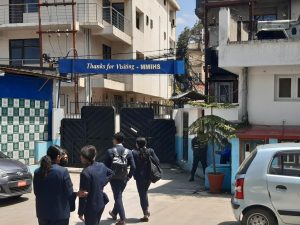
BU is currently in the process of renewing its MoA with MMIHS, to continue working together after the completion of the Erasmus+ programme. We aim to to maintain the partnership, as the BU-MMIHS collaboration includes various funded and unfunded research projects apart from the Erasmus+ programme.
Prof. Edwin van Teijlingen
CMMPH
Two little mishaps in a row
All research has its costs, we spend a lot of time as academics planning for and budgeting our studies. This starts with considering how much time each academic spends on preparing the grant application and finished with cost of dissemination of findings after the data have been analysed. We do risk assessments the try to reduce risk and mitigate unforeseen circumstances. My last two trips to Nepal both suffered from such unexpected events.
 In May I traveled to Nepal with Prof. Vanora Hundley from the Centre for Midwifery, Maternal & Perinatal Health (CMMPH) as part of the ERASMUS+ exchange with Manmohan Memorial Institute of Health Sciences (MMIHS) where we joined by Bournemouth University (BU) PhD student Sulochana Dhakal-Rai. Sulochana was in Nepal on the Turing Scheme, the UK government’s programme to provide funding for international opportunities in education and training across the world.
In May I traveled to Nepal with Prof. Vanora Hundley from the Centre for Midwifery, Maternal & Perinatal Health (CMMPH) as part of the ERASMUS+ exchange with Manmohan Memorial Institute of Health Sciences (MMIHS) where we joined by Bournemouth University (BU) PhD student Sulochana Dhakal-Rai. Sulochana was in Nepal on the Turing Scheme, the UK government’s programme to provide funding for international opportunities in education and training across the world.
As part of this trip we had organised a one-day Systematic Review on Dementia Research Workshop on Sunday 29th May in at MMIHS in Kathmandu. This Global Challenges Research Fund (GCRF) funded workshop was highly successful, it attracted 75% more participants than budgeted for, namely 53 instead of 30. However, the extra cost this incurred in terms of workshop resources, refreshments and lunches was not a great issue compared to the fact that I had contracted COVID-19 a few days before the workshop and had tested positive on a PCR test two days before. Thanks to the hard work of our colleagues at MMIHS, the non-governmental organisation (NGO) Green Tara Nepal, and especially, Prof. Vanora Hundley, the workshop run very well. I even managed to make a guest appearance online from my hotel room 200 meters away from the workshop venue, albeit on a poorer quality internet connection than I would have had half way across the globe (at BU or at home). 
This positive COVID-19 test also meant I could not travel on the India in early June due to COVID-19 travel restriction for entering India. There I had planned to meet Dr. Shanti Shanker from BU’s Psychology Department as part of our GCRF-funded project ‘Promoting dementia research in Nepal and India’. Again due to the presence of well organised colleagues the India part of the trip ran smoothly. Dr. Gayatri Kotbagi, who has works for us through the charity Sheetale Astitva, and Dr. Shanti Shanker managed to run the internal trip very well without me.
In August I traveled to Nepal again with two BU academics: Dr. Shovita Dhakal Adhikari, Lecturer in Criminology, Department of Sociology & Social Work, Dr. Pramod Regmi, Senior Lecturer in International Health (Department of Nursing Sciences) and a colleague from the University of Exeter Dr. Emma Pitchforth. The main purpose of this visit was to run two sets of three-day Academic Writing Workshop in two cities in Nepal, namely Kathmandu and Pokhara. These workshops were funded by the British Academy and supported by Dr. Rashmee Rajkarnikar from the Central Department of Economics at Tribhuvan University, Nepal’s oldest and largest university, the charity Green Tara Nepal and Social Science Baha. This time the trip itself went very well, both workshop were very well attended, and even made it into a newspaper in Nepal: The Rising Nepal.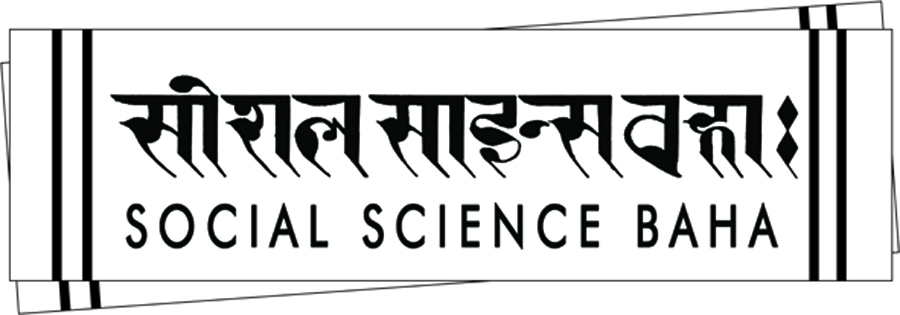
The trouble started after we had left Nepal. Dr. Pitchforth and I helped both fell ill some five to eight days after returning to the UK. We both had flu-type symptoms, including sore joints, night sweats, feeling tired, coughing, etc., although these were not exactly the same, my symptoms were perhaps a bit more like COVID-19. Which is why I did three COVID-19 tests in one week (all negative). It was not until the blood test came back from the NHS lab last week that my family doctor could tell me that I had dengue fever. Dengue fever is on the rise in Nepal. The national English-language paper The Himalayan Times reported yesterday (27th Sept. 2022) that dengue fever “has afflicted almost 26,000 people in Nepal” In July in the capital Kathmandu “…35 people had contracted the mosquito-borne disease. The number increased to 727 in August and 8,132 in September.” 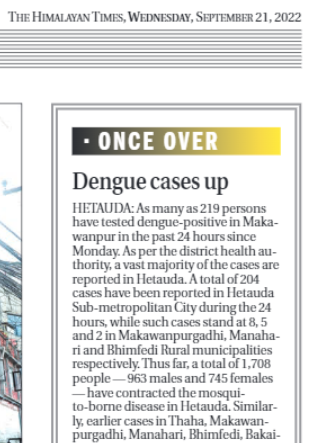
I’m looking forward to my next trip to Nepal, as we have loads of on-going project. I have been going there for nearly twenty years, and having two incidents in two decades is not a lot, pity these came in the same year and on subsequent trips.
Prof. Edwin van Teijlingen
CMMPH
Erasmus+ workshop at BU by Prof. Marahatta from Nepal
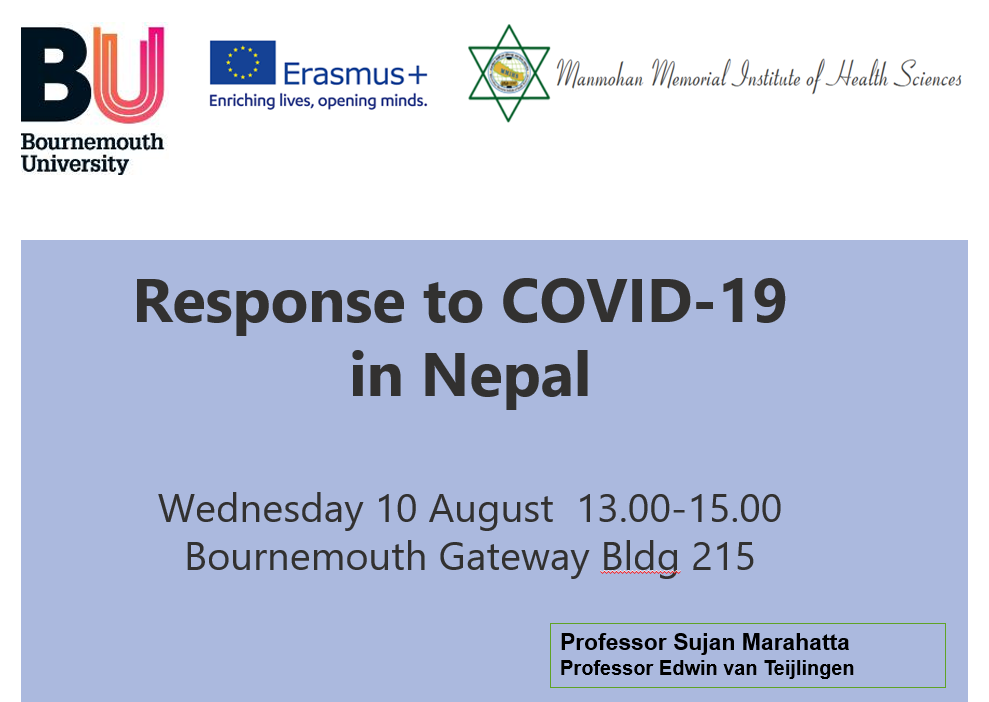 Yesterday (10th August) Prof. Sujan Marahatta from Manmohan Memorial Institute of Health Sciences (MMIHS) gave an insightful talk under the title ‘Response to COVID-19 in Nepal’ to colleagues at Bournemouth University. Prof. Marahatta arrived in the UK yesterday morning and straight off the bus from Heathrow airport came to present in the Bournemouth Gateway Building. He is at Bournemouth University as part of the ERASMUS+ Key Action 107 which includes the exchange of academic staff and students between the UK and Nepal, between BU and MMIHS. His talk covered his role in writing the official report ‘Responding to COVID-19’.
Yesterday (10th August) Prof. Sujan Marahatta from Manmohan Memorial Institute of Health Sciences (MMIHS) gave an insightful talk under the title ‘Response to COVID-19 in Nepal’ to colleagues at Bournemouth University. Prof. Marahatta arrived in the UK yesterday morning and straight off the bus from Heathrow airport came to present in the Bournemouth Gateway Building. He is at Bournemouth University as part of the ERASMUS+ Key Action 107 which includes the exchange of academic staff and students between the UK and Nepal, between BU and MMIHS. His talk covered his role in writing the official report ‘Responding to COVID-19’.
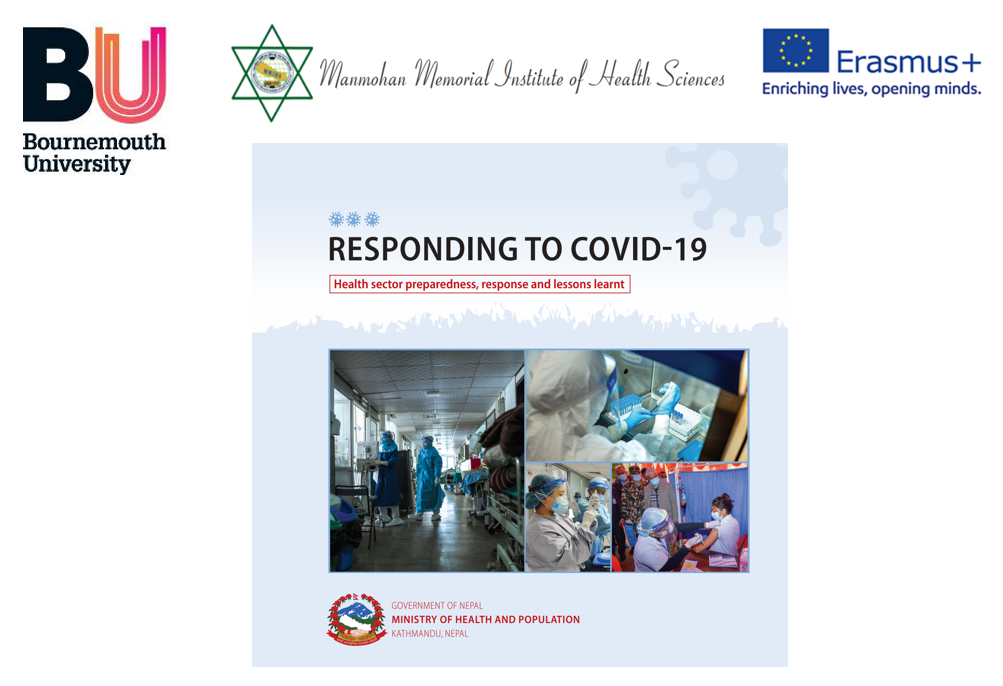
He also spoke about the various joint studies conducted between MMIHS and academics in BU’s Faculty of Health & Social Sciences. These collaborations include a range of BU academics, Dr. Pramod Regmi, Dr. Catherine Angell, Dr. Preeti Mahato (who recently moved to Royal Holloway), Prof. Carol Clark, Prof. Edwin van Teijlingen, Dr. Nirmal Aryal, Dr. Shanti Shanker, and Prof. Vanora Hundley. 
Erasmus+ is the European Commission’s flagship for financial support of mobility for Higher Education students, teachers and institutions. The British Councill is the funding agency in the UK and coordinates the funding at a national level. BU is proud to be part of Erasmus+.
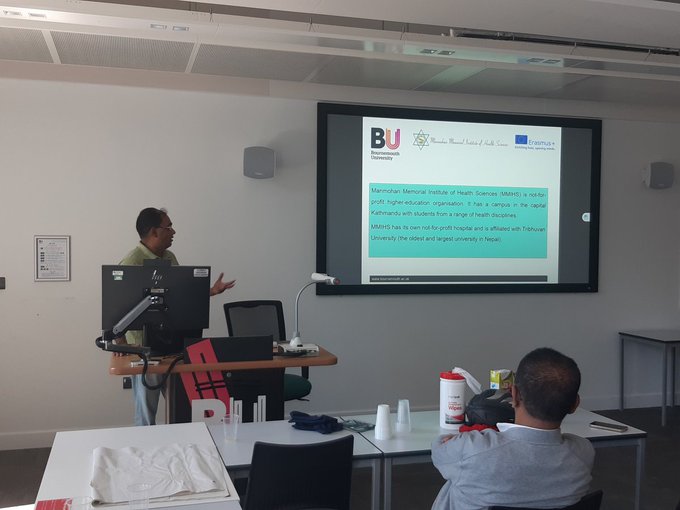
Preparing for ERASMUS+ exchange to Nepal
 Professors Vanora Hundley and Edwin van Teijlingen in the Centre for Midwifery, Maternal & Perinatal Health (CMMPH) shall be traveling to Nepal tomorrow (22 May 2022) as part of the ERASMUS+ KA107 exchange between Bournemouth University and Manmohan Memorial Institute of Health Sciences (MMIHS) in Kathmandu. They will be involved in teaching M.Sc. Public Health students as well as undergraduate Nursing students . Furthermore, one-to-one tutorials have been planned with MMIHS health researchers. There will also be sessions on academic writing and publishing following the recently published textbook Academic Writing and Publishing in Health & Social Sciences [1].
Professors Vanora Hundley and Edwin van Teijlingen in the Centre for Midwifery, Maternal & Perinatal Health (CMMPH) shall be traveling to Nepal tomorrow (22 May 2022) as part of the ERASMUS+ KA107 exchange between Bournemouth University and Manmohan Memorial Institute of Health Sciences (MMIHS) in Kathmandu. They will be involved in teaching M.Sc. Public Health students as well as undergraduate Nursing students . Furthermore, one-to-one tutorials have been planned with MMIHS health researchers. There will also be sessions on academic writing and publishing following the recently published textbook Academic Writing and Publishing in Health & Social Sciences [1]. 
Earlier this spring Dr. Pramod Regmi, Senior Lecturer in International Health in the Department of Nursing Sciences, traveled to MMIHS as part of this exchange. His visit in April 2022 included running the ‘Migration and Health Research Capacity Building Workshop for Early Career Researchers’ in Kathmandu.  Bournemouth University organised this two-day event jointly with the University of Huddersfield, MMIHS, and the charity Green Tara Nepal.
Bournemouth University organised this two-day event jointly with the University of Huddersfield, MMIHS, and the charity Green Tara Nepal.
Two current Faculty of Health & Social Sciences Ph.D. students are also benefittng from being involved in this exchange. Yagya Adhikari returned back to the UK a week or so ago whilst Sulochana Dhakal-Rai will be arriving in Kathmandu tomorrow. Both will use this ERASMUS+ opportunity to developed aspects of their Ph.D. thesis.
Reference:
- Wasti, S.P., van Teijlingen, E., Simkhada, P.P., Hundley, V. with Shreesh, K. (Eds.) (2022) Academic Writing and Publishing in Health & Social Sciences, Kathmandu, Nepal: Himal Books. [ISBN: 9789937117609]
Developing our partnership in Nepal
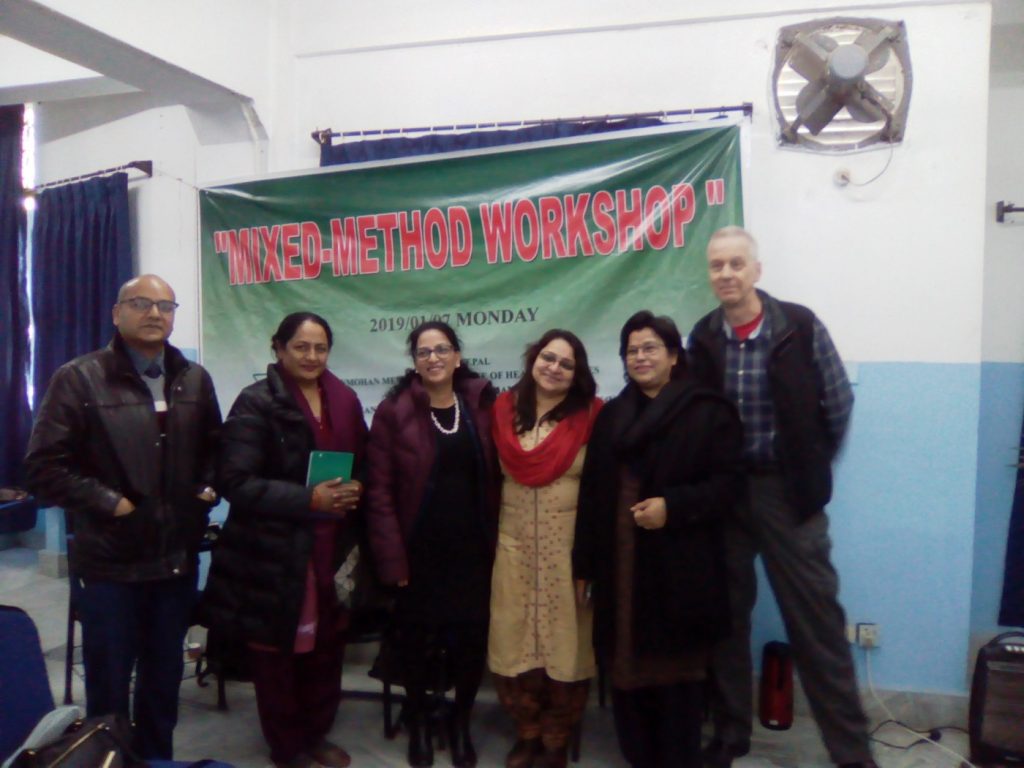 Last year BU signed a Memorandum of Agreement (MoA) with Manmohan Memorial Institute of Health Sciences (MMIHS) in Kathmandu, Nepal. This week Dr. Bibha Simkhada, Lecturer in Nursing, Dr. Shanti Shanker, Lecturer (Academic) in Psychology, and Prof. Edwin van Teijlingen in the Centre for Midwifery, Maternal & Perinatal Health (CMMPH) delivered one-day workshop on qualitative and mixed-methods research approaches. The workshop was very well attended by MSc students, not just from MMIHS, but also those from several other colleges and universities.
Last year BU signed a Memorandum of Agreement (MoA) with Manmohan Memorial Institute of Health Sciences (MMIHS) in Kathmandu, Nepal. This week Dr. Bibha Simkhada, Lecturer in Nursing, Dr. Shanti Shanker, Lecturer (Academic) in Psychology, and Prof. Edwin van Teijlingen in the Centre for Midwifery, Maternal & Perinatal Health (CMMPH) delivered one-day workshop on qualitative and mixed-methods research approaches. The workshop was very well attended by MSc students, not just from MMIHS, but also those from several other colleges and universities.
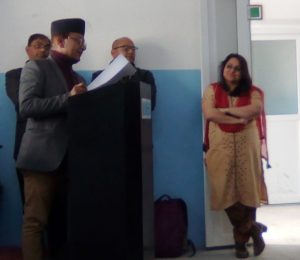 MMIHS is part of BU’s latest bids for ERASMUS Higher Education Student & Staff Mobility between Programme and Partner Countries (Key Action 107) – International Credit Mobility. Bournemouth University’s strategic plan known as BU2015 has as one of its pillars our desire to “enrich society by having a significant impact on challenges world-wide“. Through Fusion BU aims to (a) have a positive impact world-wide on the challenges facing society; (b) ensure staff, students and graduates enrich society as active citizens in their communities; and (c) strengthen our shared impact through worldwide partnerships. Expanding and developing the existing BU-MMIHS partnership is a excellent stepping stone for the ERASMUS application.
MMIHS is part of BU’s latest bids for ERASMUS Higher Education Student & Staff Mobility between Programme and Partner Countries (Key Action 107) – International Credit Mobility. Bournemouth University’s strategic plan known as BU2015 has as one of its pillars our desire to “enrich society by having a significant impact on challenges world-wide“. Through Fusion BU aims to (a) have a positive impact world-wide on the challenges facing society; (b) ensure staff, students and graduates enrich society as active citizens in their communities; and (c) strengthen our shared impact through worldwide partnerships. Expanding and developing the existing BU-MMIHS partnership is a excellent stepping stone for the ERASMUS application.
Prof. Edwin van Teijlingen
Welcoming our newest Erasmus Mundus TECHNO II post-doc
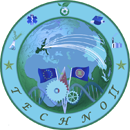 I am Dr Helmi Norman, an Erasmus Mundus post-doctoral researcher at the Faculty of Science and Technology, Bournemouth University (BU). I arrived here late December 2014 and will be attached here until the end of June 2015. My research interest is in the area of emerging learning technologies, where I am particularly interested in the mobile, online and ubiquitous technologies that can applied for 21st century learning.
I am Dr Helmi Norman, an Erasmus Mundus post-doctoral researcher at the Faculty of Science and Technology, Bournemouth University (BU). I arrived here late December 2014 and will be attached here until the end of June 2015. My research interest is in the area of emerging learning technologies, where I am particularly interested in the mobile, online and ubiquitous technologies that can applied for 21st century learning.
Currently, at BU, I am working with Dr Huseyin Dogan on three main research initiatives. First, we are working with the Technology-Enhanced Learning Division under the Centre for Excellence in Learning at BU on creating a Massive Open Online Course (MOOC) for education technology. The MOOC created could serve as platform for educators in exploring potential teaching and learning technologies for promoting learner-driven innovations. I have been previously involved with a national MOOC initiative in Malaysia and the BU MOOC initiative can further spark new cross-regional research between Europe and Asia in this field.
Second, we are currently studying on social media addiction which is currently becoming a serious issue and we are investigating effective approaches and techniques of intervening with the addiction. Third, we are also currently working on a research about peer assessment using online learning technologies.
Feel free to contact me on future collaborations at mnorman@bournemouth.ac.uk or helmi.norman@gmail.com.
BU has two Erasmus Mundus Academic Partnerships TECHNO and TECHNO II partnerships. Please contact Dr Demetra Andreou if you would like more information: dandreou@bournemouth.ac.uk
Erasmus Mundus call released
Erasmus+ is the EU’s largest programme of support for education and training worth a mega €14.7bn. Projects usually run 2-3 years and they all have the aim of improving the level of key competencies and skills, improving the innovation and internationalisatoon of education and supporting the modernisation of education and training.
There are 11 programmes of funding available:
- Asylum & Migration: People flows and management of migration
- Creative Europe: Support for European cinema and the cultural and creative sectors
- EaSI: Programme for social change and innovation
- Erasmus+: Programme for education, training, youth and sport
- Europe for Citizens: Strengthen remembrance and enhance capacity for civic participation at Union level
- Health for Growth: Improving the quality, efficiency and sustainability of health systems
- Internal Security Fund: Support for the EU’s Internal Security Strategy
- Justice: Ensuring proper access to justice in cross-border legal cases
- COSME: Improving the business environment and the competitiveness of European enterprises.
- LIFE: Environmental and climate change action projects
- Rights, Equality & Citizenship: Promote the rights deriving from European citizen
The most generically applicable programme sunder the new organisation for BU staff is the Erasmus Mundus programme which is now found under Erasmus+ under :
- Key Action 1 ‘Learning Mobility of Individuals’
- Key Action 2 ‘Cooperation for Innovation & Exchange of Good Practice’
If you wish to make an Erasmus Mundus Action 2 submission, please get in touch with Paul Lynch or Sarah Katon a minimum of 5 weeks before the deadline of 3 March 2014 as Partners must be reviewed as part of our internal processes.
Erasmus Mundus calls for proposals released!
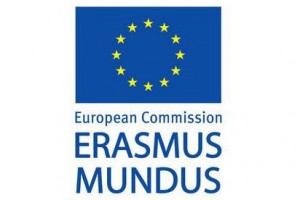 The first calls for Erasmus Mundus have been released. This call is for Action 2 of the Programme which is aimed at fostering structured cooperation between EU and third-country higher education institutions through the promotion of mobility at all levels of studies for students (undergraduate and masters), doctoral and post-doctoral candidates, researchers, academic and administrative staff (not all regions and lots may include all types of mobility flow).
The first calls for Erasmus Mundus have been released. This call is for Action 2 of the Programme which is aimed at fostering structured cooperation between EU and third-country higher education institutions through the promotion of mobility at all levels of studies for students (undergraduate and masters), doctoral and post-doctoral candidates, researchers, academic and administrative staff (not all regions and lots may include all types of mobility flow).
Action 2 of the Erasmus Mundus partnerships call is divided into two strands:
- Erasmus Mundus Action 2 — STRAND 1 — Partnerships with countries covered by the ENPI, DCI, IPA and ICI (ICI +) instruments;
- Erasmus Mundus Action 2 — STRAND 2 — Partnerships with countries and territories covered by the Industrialised Countries Instrument (ICI).
The countries to be targetted and the number of projects likely to be selected and the budget available can all be found in the Guidance Document. The deadline for proposals is 3 March 2014. You may also recall that over the summer a new process to manage Erasmus Mundus submissions was implemented at BU whereby partners on these proposals must be approved by the International & UK Partnerships Committee (IUPC). To ensure the approval is a speedy process, a bespoke proposal form, template and process has been developed for Erasmus Mundus applications. Once approved by this committee, this will help ensure the Contract Agreement Form is produced much faster.
If you are approached to be part of an Erasmus Mundus proposal, or would like to coordinate one then you will need to complete a Partnership Development Proposal form a minimum of five weeks before the deadline – this will be the 27 January . The full process and timescale can be obtained by contacting Paul Lynch or Sarah Katon who will guide you through this.
New Process for Erasmus Mundus Partner Approvals
 Erasmus Mundus grants are a fantastic source of EU funding. It is important that BU ensures Partners we link with as part of these awards are aligned to our strategic objectives or have a strong rationale for linking with them. In summer 2013 the BU Policy 7A Partnership Definitions and Models was amended to include Erasmus Mundus Partnerships under the ‘student exchange’ definition. This amendment ensures that partnership agreements under Erasmus Mundus will follow existing policies and procedures for student exchange developments, including 7B Partnership Approval, and 7H Student Exchange.
Erasmus Mundus grants are a fantastic source of EU funding. It is important that BU ensures Partners we link with as part of these awards are aligned to our strategic objectives or have a strong rationale for linking with them. In summer 2013 the BU Policy 7A Partnership Definitions and Models was amended to include Erasmus Mundus Partnerships under the ‘student exchange’ definition. This amendment ensures that partnership agreements under Erasmus Mundus will follow existing policies and procedures for student exchange developments, including 7B Partnership Approval, and 7H Student Exchange.
This means for the next round of Erasmus Mundus calls (anticipated April 2013), partners on these proposals must be approved by the International & UK Partnerships Committee (IUPC). To ensure the approval is a speedy process, a bespoke proposal form, template and process has been developed for Erasmus Mundus applications. Once approved by this committee, this will help ensure the Contract Agreement Form is produced much faster.
If you are approached to be part of an Erasmus Mundus proposal, or would like to coordinate one then you will need to complete the Partnership Development Proposal form a minimum of five weeks before the deadline. The full process and timescale can be obtained by contacting your RKEO Operations Officer who will guide you through this.
If you wish to participate in an Erasmus Mundus and have not notified R&KEO a minimum of five weeks in advance of the deadline, then you must make an appeal to your Deputy Dean Research & Enterprise and Pro-Vice-Chancellor Professor Matthew Bennett.
Erasmus Mundus Call Open – INTERESTED?
The Erasmus Mundus 2013 call for proposals is now open! Full details of the call can be found here and please note that this year’s call is for Action 2 and 3 proposals only.
We need to assess the level of interest across BU in submitting applications to this call in order to ensure we meet the guidelines re multiple applications.
If interested in applying, please contact Paul Lynch asap! – plynch@bournemouth.ac.uk
Erasmus Mundus call out!
 This is a reminder that the Erasmus Mundus 2013 call for proposals has been released! Full details of the call can be found here and this year’s call is for Action 2 and 3 proposals only. The British Council plans to hold an Erasmus Mundus Information Day on 8 February 2012 in order to support institutions who are currently participating in Erasmus Mundus projects and those who are interested in submitting proposals under the current call. Further details of how to register for this event will be circulated in the near future.
This is a reminder that the Erasmus Mundus 2013 call for proposals has been released! Full details of the call can be found here and this year’s call is for Action 2 and 3 proposals only. The British Council plans to hold an Erasmus Mundus Information Day on 8 February 2012 in order to support institutions who are currently participating in Erasmus Mundus projects and those who are interested in submitting proposals under the current call. Further details of how to register for this event will be circulated in the near future.
Erasmus Mundus Funding Available
 The Erasmus Mundus 2013 call for proposals is now open! Full details of the call can be found here and please note that this year’s call is for Action 2 and 3 proposals only.
The Erasmus Mundus 2013 call for proposals is now open! Full details of the call can be found here and please note that this year’s call is for Action 2 and 3 proposals only.
The British Council plans to hold an Erasmus Mundus Information Day on 8 February 2012 in order to support institutions who are currently participating in Erasmus Mundus projects and those who are interested in submitting proposals under the current call. Further details of how to register for this event will be circulated in the near future….
The future of Erasmus
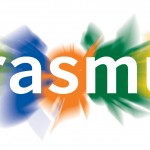 BU had had a successful track record with Erasmus, Erasmus Mundus, Leonardo da Vinci and other Lifelong Learning programme initiatives so I am pleased to have an update on these in Horizon 2020. This year the Erasmus scheme is 25 years old it’s good to see that education and youth policies remain high on the EU agenda and features heavily in documents such as Europe 2020 and Education and Youth 2020 strategy.
BU had had a successful track record with Erasmus, Erasmus Mundus, Leonardo da Vinci and other Lifelong Learning programme initiatives so I am pleased to have an update on these in Horizon 2020. This year the Erasmus scheme is 25 years old it’s good to see that education and youth policies remain high on the EU agenda and features heavily in documents such as Europe 2020 and Education and Youth 2020 strategy.
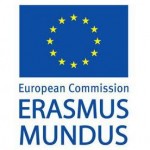 In order to avoid duplication and increase simplification, for Horizon 2020 the lifelong learning programmes, Erasmus, Grundtvig, Leonardo and Cornelius, Youth in Action and other smaller programmes will be compressed into 3 Erasmus for All initiatives with a whopping €19billion budget. The current 7 different co-financing rules will all be harmonised into one set of rules for all schemes within this programme. Also under the current programmes we need to have an Erasmus University Charter which will still be needed. Once you have it you never need to apply again, which is good for BU as we already have it. This Charter covers different aspects of mobility for staff, students and placements and the EC are currently debating how best they can amalgamate these without making places like BU having to apply from scratch again. The three proposed Erasmus for All initiatives are:
In order to avoid duplication and increase simplification, for Horizon 2020 the lifelong learning programmes, Erasmus, Grundtvig, Leonardo and Cornelius, Youth in Action and other smaller programmes will be compressed into 3 Erasmus for All initiatives with a whopping €19billion budget. The current 7 different co-financing rules will all be harmonised into one set of rules for all schemes within this programme. Also under the current programmes we need to have an Erasmus University Charter which will still be needed. Once you have it you never need to apply again, which is good for BU as we already have it. This Charter covers different aspects of mobility for staff, students and placements and the EC are currently debating how best they can amalgamate these without making places like BU having to apply from scratch again. The three proposed Erasmus for All initiatives are:
1. Learning Mobility: This will focus on individuals and will have 63% of the budget. It will target staff (youth workers, school workers, teachers, trainers) and Higher Education students and Masters students. It will also cover volunteering and youth exchanges for young people and mobility outside of the EU. So what does this mean for us? Well, more mobility is available as Erasmus has an international focus, not just EU. I will offer high quality joint Masters degrees through consortiums of universities and also will provide us with student loan guarantees to boost mobility.
2. Cooperation Projects: This will have 25% of the budget which will be used to support cooperation in order to achieve innovation and good practice which it will achieve through strategic partnership support between various stakeholders (including education to education and education to businesses). It wants to use funding to explore how we can make graduates more employable – what skills and competencies for graduates need to be employed in certain sectors. It will also support large scale partnerships between higher education institutes and businesses through large ‘knowledge alliances’ (up to €1m) and support third county capacity building. So what does this mean for us? The will be Erasmus Clusters which have intense cooperation between countries which we need to be part of. We need to also get involved with businesses to achieve the knowledge alliance aspects and we can also now target countries outside of the EU to build working relationships with. Finally we could start to use strategic partnerships through this type of funding to establish future Marie Curie fellowships.
3. Policy Support: This funds holds 4% of the budget and will be used for policy reform, particularly this policies mentioned in the introduction. It will support the valorisation and implementation of EU transparency tools, policy dialogue with stakeholders and will cover the entire world and not just the EU. So what does this mean for us? We can get involved with countries sours de of Europe and contribute to policy development.
What about Jean Monnet and sport funding? Don’t worry these will also exist in Erasmus for All. Jean Monnet will remain pretty much exactly how it is supporting institutions who promote European citizenship. As for sport, it was determined by the EC that many aspects of sport research involve the need for learning, such as why racism exists in sport, and so they have included it within the Erasmus for All scheme.
By early 2013 the European Parliament would have reviewed and agreed the final proposals for Erasmus for All and so we will know the final details as how it will look and confirmation of the budgets etc at this point. I will of course keep you updated each time in receive any information.
Even more reasons to think about an Erasmus Mundus application
 David Willetts, Minister for Universities and Science, recently submitted a response to a report ‘Recommendations to support UK Outward Student Mobility ‘ produced by a group established last year to review the obstacles and incentives to outward student mobility in the UK.
David Willetts, Minister for Universities and Science, recently submitted a response to a report ‘Recommendations to support UK Outward Student Mobility ‘ produced by a group established last year to review the obstacles and incentives to outward student mobility in the UK.
Support was given for the report which advocates the creation of a national strategy for mobility supported by ‘a body designed to facilitate and promote best practice, effectiveness and professionalism’. In fact Mr Willetts liked it so much he asked the Group’s Chair to explore possible models for a national strategy, including a national body to coordinate this, for a future meeting of the high-level International Education Advisory Forum.
Student mobility is becoming a more strategic issue for the UK, giving students a competitive advantage in the employment market and institutions an increase in international collaborative research and raising the institutions profile across the world.
The EC released figures on the Erasmus Mundus programme last week; approximately 231,000 students and 43,000 university staff received an EU grant to study or work abroad as part of the Erasmus programme in 2010-11. This represents a 7.2 per cent increase for study grants compared with the previous academic year; a 15 per cent increase in grants for work placements; and a 13.3 per cent increase for staff exchanges.
Erasmus Mundus is a great way for you to get involved with student mobility and to help you build stronger networks abroad for future research collaborations. This programme funded by the EC is designed especially to help you establish partnerships with institutions abroad and also to allow you to study/ research/ teach internationally. You can read more on the Erasmus Mundus scheme on my previous blogpost.
New management process for Erasmus Mundus at BU
 I am delighted so many of you have been inspired to apply for Erasmus Mundus after Rudy Gozlan’s recent success with the TECHNO project (presentation available at I:\R&KEO\Public\RDU\Erasmus Mundus). With this in mind, RKE Operations will now manage both the pre- and post- award process for all Erasmus Mundus applications with immediate effect. The process will therefore be just like any research bid you wish to submit at BU, and the key person to contact if you wish to apply is Paul Lynch.
I am delighted so many of you have been inspired to apply for Erasmus Mundus after Rudy Gozlan’s recent success with the TECHNO project (presentation available at I:\R&KEO\Public\RDU\Erasmus Mundus). With this in mind, RKE Operations will now manage both the pre- and post- award process for all Erasmus Mundus applications with immediate effect. The process will therefore be just like any research bid you wish to submit at BU, and the key person to contact if you wish to apply is Paul Lynch.
For anyone unfamiliar with it, the Erasmus Mundus is a European Commission funding programme which provides organisations such as BU in order to establish partnerships and to individual researchers, students or professional support staff in order to study/ research/ teach. There are 3 ‘actions’ of support which you can read in more detail in this blogpost. It’s a great scheme and a fantastic way to create networks across the world.
Erasmus Mundus is not to be confused with its sister ‘Erasmus’ programme which supports study exchanges and work placements in Europe for students for a minimum of 3 months and funding to help support staff teaching or training visits to partner universities or enterprises in Europe. This will still be managed by Deborah Velay in Student & Academic Services as it is heavily student focused, has different pre- and post- award management requirements to Erasmus Mundus.
Any confusion between the two schemes should be eliminated with the Erasmus for All programme which will see the merger of 7 huge Lifelong Learning Programmes funded by the Commission, including Erasmus, Erasmus Mundus, Leonardo, Grundtvig, etc. I will keep you posted with details as I get them!
Erasmus Mundus EM-iDEA events in March and July
 This is an announcement for the second and third conferences organised by the Erasmus Mundus (EM) Action 3 project EM-iDEA, which will take place in, Lund (Sweden) on March 27th 2012 and Vilnius (Lithuania) on July 13th 2012
This is an announcement for the second and third conferences organised by the Erasmus Mundus (EM) Action 3 project EM-iDEA, which will take place in, Lund (Sweden) on March 27th 2012 and Vilnius (Lithuania) on July 13th 2012
The aim of the EM-iDEA project is to bring together those working and interested in Erasmus Mundus projects to exchange and to prepare collective actions. These conferences are two of six regional conferences organised by the project. Three more will be held before July 2013 in Novi Sad, Valencia and Bordeaux. You will find information on the conference which was held in Ghent on the project’s website, where you will also find a newsletter.
You should consider attending one of the sessions if you are working on an existing joint programme of Erasmus Mundus or if you are preparing a new one, if you wish to meet people involved in the implementation of joint programmes or if you would like to participate in the creation of a structured network of professionals with experience in the development and implementation of joint programmes. Have a look and book your place now 🙂
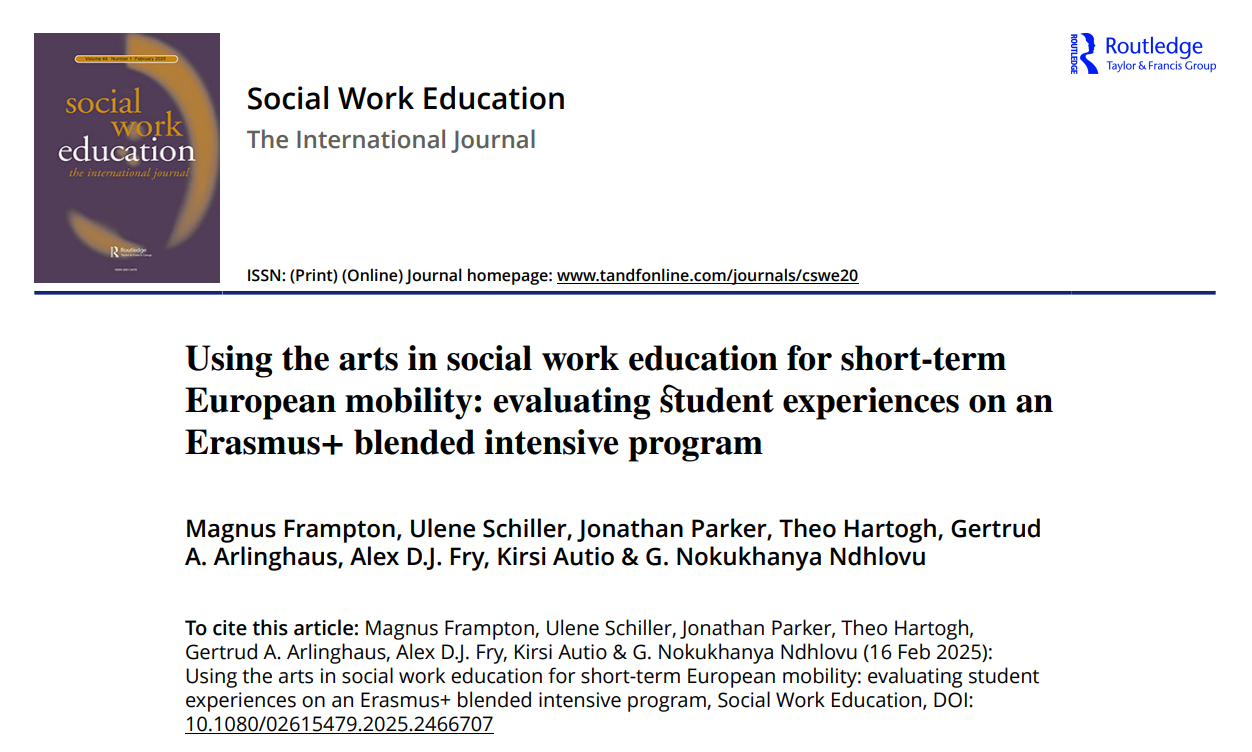











 From Sustainable Research to Sustainable Research Lives: Reflections from the SPROUT Network Event
From Sustainable Research to Sustainable Research Lives: Reflections from the SPROUT Network Event REF Code of Practice consultation is open!
REF Code of Practice consultation is open! BU Leads AI-Driven Work Package in EU Horizon SUSHEAS Project
BU Leads AI-Driven Work Package in EU Horizon SUSHEAS Project Evidence Synthesis Centre open at Kathmandu University
Evidence Synthesis Centre open at Kathmandu University ECR Funding Open Call: Research Culture & Community Grant – Apply now
ECR Funding Open Call: Research Culture & Community Grant – Apply now ECR Funding Open Call: Research Culture & Community Grant – Application Deadline Friday 12 December
ECR Funding Open Call: Research Culture & Community Grant – Application Deadline Friday 12 December MSCA Postdoctoral Fellowships 2025 Call
MSCA Postdoctoral Fellowships 2025 Call ERC Advanced Grant 2025 Webinar
ERC Advanced Grant 2025 Webinar Update on UKRO services
Update on UKRO services European research project exploring use of ‘virtual twins’ to better manage metabolic associated fatty liver disease
European research project exploring use of ‘virtual twins’ to better manage metabolic associated fatty liver disease